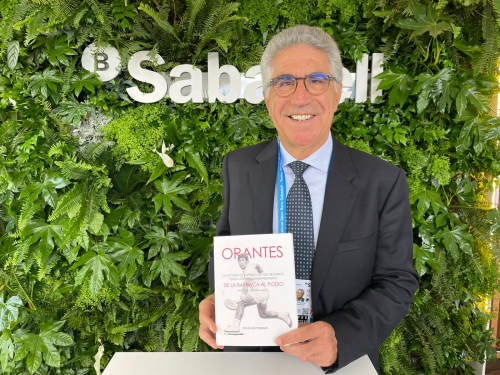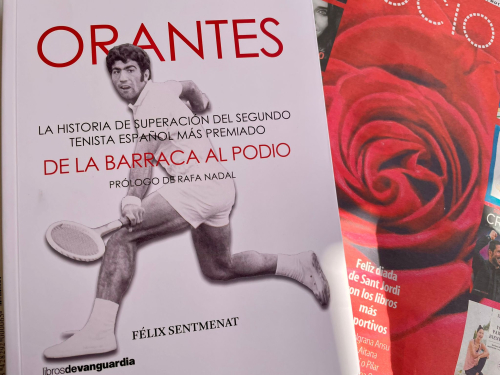Only the most seasoned players know that Manuel Orantes was an unexpected gem – or should we say a rose – in the barren Spanish tennis landscape of the 1970s. He grew up in a shack in the El Carmel neighbourhood of Barcelona and, out of the blue, he became the second best tennis player in the world by 1973. Today, in the incomparable setting of the Barcelona Open Banc Sabadell, on the occasion of International Book Day, the best reading of his career is presented.

Orantes’ extraordinary career has been captured in ‘De la barraca al podio’, a biography written by the journalist Félix Sentmenat. Winner of 33 ATP titles, including the US Open and the Masters, and three-time winner of the Real Club Tenis Barcelona tournament, Manuel Orantes, is the second most successful Spanish tennis player in history. He is second only to Rafa Nadal.
He was born in Granada in 1949 into an impoverished family. His mother died from an illness when he was six months old. He arrived in Barcelona when he was two years old and settled with his two brothers, an aunt and his grandparents in a makeshift shack on an open field in the El Carmel neighbourhood. There was no electricity, water or heating. His father abandoned them shortly afterwards for another woman. At the age of eight, he joined the La Salut Tennis Club as a ball boy and took advantage of this springboard to propel himself to the pinnacle of world tennis. From then on, his capacity for hard work, sacrifice, commitment, humility and early maturity turned this extraordinary tennis gem into a textbook success case.

The journalist Félix Sentmenat explains that the biography came about by chance, during a spontaneous chat in the Real Club de Tenis Barcelona cafeteria, filled with anecdotes and stories of him as a player. ‘I thought -Sentmenat explains- that Orantes had not had the repercussion that his 33 ATP titles called for. That the figure of Santana had always been highlighted, due to his undeniable status as a pioneer of Spanish tennis, and that as a result, one of our great sportsmen had been neglected. That it is worthwhile to unearth and put in writing the experiences of someone who stands out for being, as Machado said, “in the true sense of the word, a good man”.
For tennis fans or for those who admire life stories of self-improvement, ‘De la barraca al podio’ is a great choice for a day of books and roses.